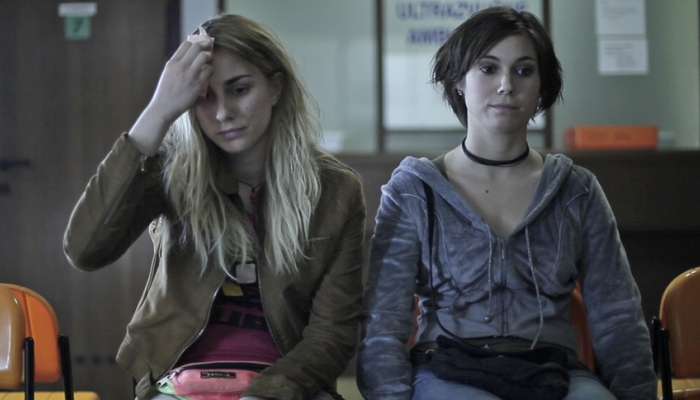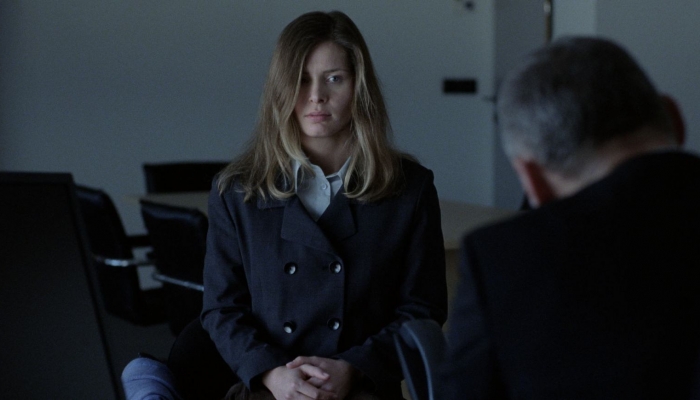Seven Croatian Films in 17th Sarajevo Film Festival Competition Programme


Seven Croatian films have entered the official competition programme of this year’s 17th Sarajevo Film Festival (22-30 July).
The film Spots by writer and director Aldo Tardozzi will have its international premiere in the Competition programme – Feature film. This film will compete alongside nine other feature live action films from the region. Tardozzi’s feature debut is a story about a chance friendship between two seventeen-year-olds, Lana and Irena, born on an eventful evening in Zagreb. The path crossed by the friends is full of temptations, turnovers, suspense, but also sacrifice, courage and love. The film stars Iskra Jirsak, Nika Mišković, Živko Anočić, Goran Grgić, Sanja Vejnović, Filip Križan, Franjo Kuhar and Alen Liverić. The cinematographer is Darko Drinovac, editor Mato Ilijić, set designer Mato Gabelica, costume designer Alena Orović, and music composer Luka Zima. The film was co-produced by Kinoteka from Zagreb, and the producers are Ljubo Zdjelarević, Barbara Jukopila and Tomislav Vujić. The Croatian premiere of the film will take place this month in the National Programme of the Pula Film Festival.
The Competition programme – Short film category contains two Croatian films, the live action film Mezzanine (2011) by Dalibor Matanić and animated film Dove sei amor mio (2011) by Veljko Popović.
Matanić’s narrative takes place in an alienated megalopolis governed by unrelenting rules of the corporate society. The protagonist of Mezzanine, a young woman looking for a job (Leona Paraminski), accepts being brought down to human flesh, because it is the only possible entrance in the game of survival. Mezzanine had its Croatian premiere in March in Rijeka, while the screening at Sarajevo Film Festival will be its international premiere. The film was co-produced by Kinorama from Zagreb.
The short animated film Dove sei, amor mio (2011) is a story of a lonely life of an old woman, filled with everyday rituals and melancholy memories of happier days. Still, underneath the surface there is a dark secret the old woman cannot run away from. The film was produced by Bonobostudio.
The Competition programme – Documentary film contains four films from Croatia. These are The War Reporter by Silvestar Kolbas, Deorubicaing by Domagoj Matizović, and the documentary experimental film The Way Out by Vedran Šamanović, which will have their international premieres in Sarajevo, as well as Land of Knowledge by Saša Ban with its world premiere.
The 60-minute documentary film The War Reporter (2011), directed by Silvestar Kolbas and produced, as well as Deorubicaing, by Factum from Zagreb, is an account of the events taking place during the 1991 aggression in Croatia. By using the footage he made during the Croatian War of Independence, as a Croatian Television cameraman, the director tells his personal tale. Kolbas made his directorial debut in 2003 with a noted personal documentary All About Eve. The War Reporter received the Oktavijan award for best documentary film, as well as the best editing award, at the 20th Croatian Film Days.
Deorubicaing (2010), a 20-minute film directed by Domagoj Matizović is a thematic overview of the ‘white plague’ (depopulation) on the example of a village in Slavonia that becomes characteristic of the conditions in the country. Both films had their national premieres at this year’s ZagrebDox.
The Way Out (2010), directed by the early-departed cinematographer and director, president of Zagreb Film Club and One Take Film Festival director Vedran Šamanović, is a 10-minute film based on the script by Sanja Šamanović and produced by the Croatian Film Clubs’ Association. It is an experimental film based on a long talk with the protagonist, Mrs. Gabrijela, who lost a loved one and whose emotions are exposed and available.
A five-minute documentary by Saša Ban Land of Knowledge (2011), produced by Hulahop and Croatian radiotelevision (HRT), will have its world premiere in Sarajevo. The film documents 35 days of the blockade that took place at the Faculty of Humanities and Social Sciences in Zagreb in April 2009, during which the government ignored the students, who in turn gathered in the Plenum, a body consisting of several hundred students who are also the film’s ‘protagonist’.
Title photos: Spots and Mezzanine
